Dongzhi : The Shortest day of the Year is arriving!
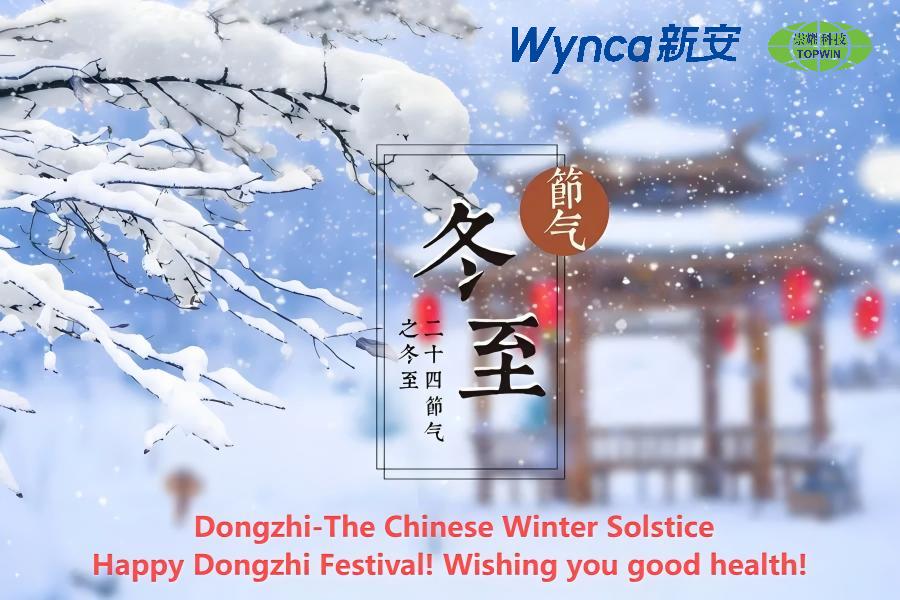
What is Dongzhi Festival?
Dongzhi - The Chinese Winter Solstice (冬至) literally means 'Winter's Arrival'. It marks the shortest period of daylight and the longest night of the year in the Northern Hemisphere. Subsequently, daylight hours will progressively extend, and the most frigid temperatures will sweep across all regions of the Northern Hemisphere. We Chinese often refer to it as "JinJiu," signifying that once the Dongzhi arrives, we are about to face the coldest period ahead. In ancient times, people recognized that on this particular day, the sun reached its nadir in the sky for the year. Following this, the days began to lengthen, heralding the arrival of new hope.
The History of the Dongzhi Festival
Dongzhi Festival was first established as one of the 24 traditional solar terms in Chinese culture. China's Winter Solstice has been celebrated since the Han Dynasty (206 BC – 220 AD). It is said that the earliest winter solstice in China was discovered by a sage called Zhou Feng when using a sundial. Since then, Winter Solstice (Dongzhi) has been an important festival in China. There is an old saying that Dongzhi is more important than Chinese New Year.
During the Tang Dynasty (618–907) and Song Dynasty (960–1279) eras, officials in the government were granted a 7-day holiday to go back home to celebrate the festival with their family and worship heaven and their ancestors.
The Date of Dongzhi Festival
The date of Dongzhi varies slightly in the Gregorian calendar. It always falls around December 22nd or 23rd.
Dongzhi in 2024: December 21st
How Do Chinese People Celebrate the Dongzhi Festival?
Chinese people celebrate Dongzhi Festival in many ways. The most popular ones are worshiping heaven and ancestors, counting the Nines of Winter (Shu Jiu) and eating dumplings and Tangyuan.
Worshiping Heaven
The Chinese people have worshipped heaven on Dongzhi Day since the Han Dynasty. Many temples were built for this reason, including the famous Temple of Heaven in Beijing. It was believed that heaven worship would bring a great harvest and good health for the coming year.
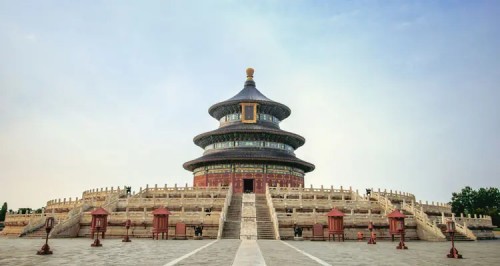
The Temple of Heaven was used to worship the Heaven
Worshiping Ancestors
It is a tradition to worship the ancestors as part of the Dongzhi Festival. People set up incense burners in front of their ancestors' tablets and place some food on a table in front, such as dumplings, steamed chicken, or cooked pork as a symbolic offering to their family ancestors. In some eastern parts of China, people take food and incense to their ancestors' tombs, sweep the tombs, and pay respects to their ancestors during the winter solstice festival.
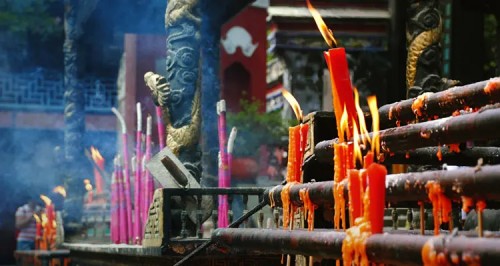
Counting the Nines of Winter (Shu Jiu)
In many areas of northern China, people count the Nines of Winter during the coldest part of winter. The Nines of Winter is a folk song. In Chinese traditional culture, nine is the 'extreme number', representing eternity. Chinese people believed that spring will come after nine periods of nine days starting from the Winter Solstice.
The Nines of Winter song goes like this:
'During the first and second nine days, it's too cold to put your hands in the air;
During the third and fourth nine days, you can walk on ice;
During the fifth and sixth nine days, willows on the banks start to sprout;
During the seventh nine days ice will dissolve;
During the eighth nine days, wild geese fly back north;
During the last nine days, farmers' oxen start to work in the fields.'
The song charts the changes in the weather and natural world that come before the time for farming to begin again.
Traditional Foods of Dongzhi Festival
Dumplings-Northern China Food
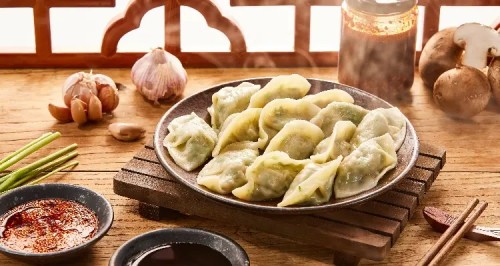
In northern China where it can get bitterly cold, the people lacked sufficient warm clothing and adequate heating, so they ate hot food and drank hot liquids to stay warm. People believed that when the days were short, there was insufficient Yang energy, and they tried to eat high Yang foods according to Chinese medicinal cuisine principals.
Dumplings have been the most traditional food in the north of China for a long time. People make dumplings on Dongzhi Day with their friends and family. They roll out the dough into a flat sheet, place fillings such as meat or vegetables within, and then pinch the edges to seal them shut.
There's a fun saying that having dumplings keeps ears from getting frostbitten in winter, as they resemble ears in appearance! According to legend, during ancient times, a doctor named Zhang Zhongjing invented dumplings by wrapping mutton and Chinese medicine in dumpling dough and gave them to people to cure frostbite. Since then, the tradition of eating dumplings on Winter Solstice Day was passed down from generation to generation.
Tangyuan-Southern China Food
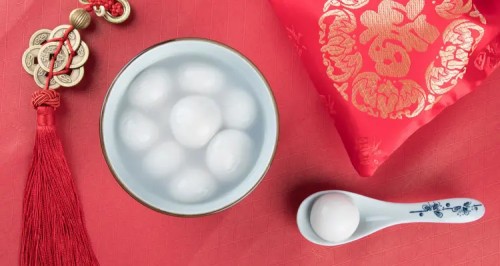
Besides dumplings, people of south China have a tradition of eating glutinous rice balls called Tangyuan, which means “family reunion”. The history of eating Tangyuan can be dated back to the Song Dynasty (960–1279). It is usually crafted from glutinous rice flour, shaped into small balls, and occasionally filled with sweet ingredients like sesame or red bean paste. Tangyuan's round shape symbolizes the joyous reunion of family members and prosperity.
Some people in southern China and some Chinese in communities in Southeast Asia gather together to make and eat a meal of Tangyuan.
These are specially cooked balls of rice that might have a filling of bean paste or meat with sweet high yang herbs. These are usually pink or white colored. Tangyuan is often served in a bowl with a sweet soup or broth.
Happy Dongzhi Festival! Wishing you good health!